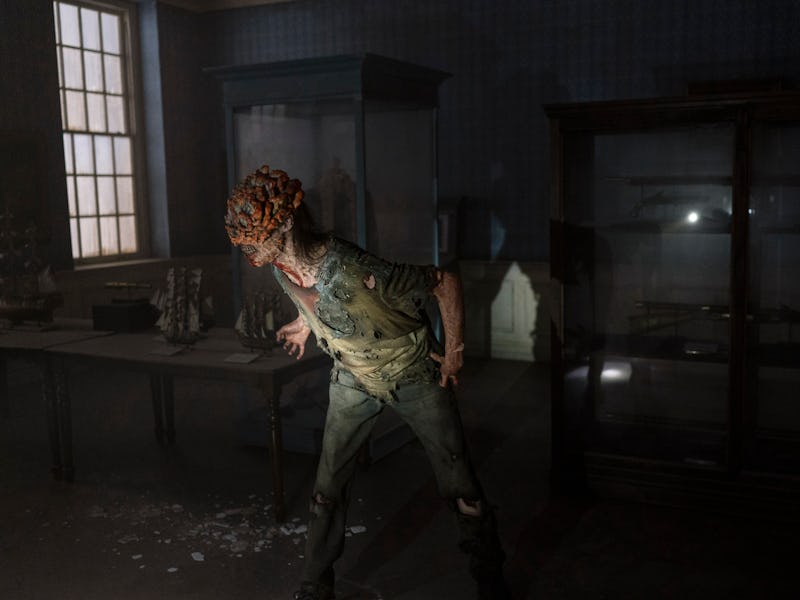The Last of Us Episode 2 gives zombies a desperately needed update
“Infected” does what few other recent zombie TV shows or movies have: make the monsters scary again.

When Naughty Dog released The Last of Us in 2013, consumers were already starting to tire of the zombie genre. Countless other games and 11 seasons of The Walking Dead later, the possibility of zombies ever coming across as scary or even threatening again has always seemed slim. That hasn’t stopped HBO’s adaptation from trying to inject some new life into the horror subgenre.
Against the odds, Episode 2 actually comes as close as any other post-Walking Dead title has to accomplishing that goal. The episode, “Infected,” employs several clever tricks and presents viewers with new takes on the post-apocalyptic zombie genre that range from unsettlingly scientific to simply bone-chilling.
How The Last of Us brings horror back to the zombie genre
“They can’t see, but they can hear.”
Anyone who watched Last of Us co-creator Craig Mazin’s previous HBO series, Chernobyl, will likely see his fingerprints all over the cold open of “Infected.” The sequence, which follows a scientist (Christine Hakim) as she’s forced to examine the body of one of the first infected humans, pulses with the same measured, sterile sense of scientific doom that was present throughout the earlier show.
The moment Hakim’s scientist pulls a cluster of cordyceps from the mouth of the human she’s inspecting is horrifying, and the subsequent scene where she tells her superior that the only way to stop the spread is to bomb the city they call home is even more so. In both instances, The Last of Us emphasizes not only the body horror aspects of its fungus-centric transformations, but also the deadly science at the heart of its zombie apocalypse.
When Joel (Pedro Pascal), Ellie (Bella Ramsey), and Tess (Anna Torv) subsequently run into a pair of Clickers during their walk through an abandoned Boston museum, director Neil Druckmann relies on many of the same tricks as the games to emphasize just how dangerous the blind zombies actually are. Druckmann traps the trio in a dimly lit, creaky building, and he places them in rooms full of display cases and mannequins, making the museum feel much more claustrophobic.
When a Clicker’s around, try not to make a sound.
The tight quarters of the museum, combined with the freaky practical prosthetics used to bring the Clickers to life, make the zombies feel lethal and dangerous. Later, during the final moments of “Infected,” Druckmann and Mazin elevate the zombies further.
It’s established early in “Infected” that the zombies are even more connected to each other than in the games. In its final sequence, the episode pays off that bit of exposition when one infected human alerts a horde of zombies to Tess, Joel, and Ellie’s location. After forcing her two companions to go on without her, Tess sets a fiery trap for their pursuers. As she tries to pull the trigger, Tess is cornered by a slow-moving zombie who, rather than tearing her to pieces, kisses her.
The cordyceps inside him reach out of his mouth and into Tess’ to speed up her transformation. It’s scary and gross, not just visually but because it’s clear that the infected humans don’t view themselves as mindless zombies, but as members of an interconnected community designed to grow larger and larger.
The Last of Us Episode 2 gives viewers their first proper look at the series’ fungus-covered zombies.
The Inverse Analysis — There’s a lot The Last of Us Episode 2 does right. It zips the plot along and expands the scope of its post-apocalyptic world. On a purely visceral level, however, “Infected” also does what very few zombie movies or TV shows of the past decade have done: it makes the concept of a zombie apocalypse scary again. Considering how overcrowded the zombie genre has become, that’s an accomplishment worth noting.
New episodes of The Last of Us air Sundays on HBO.
This article was originally published on